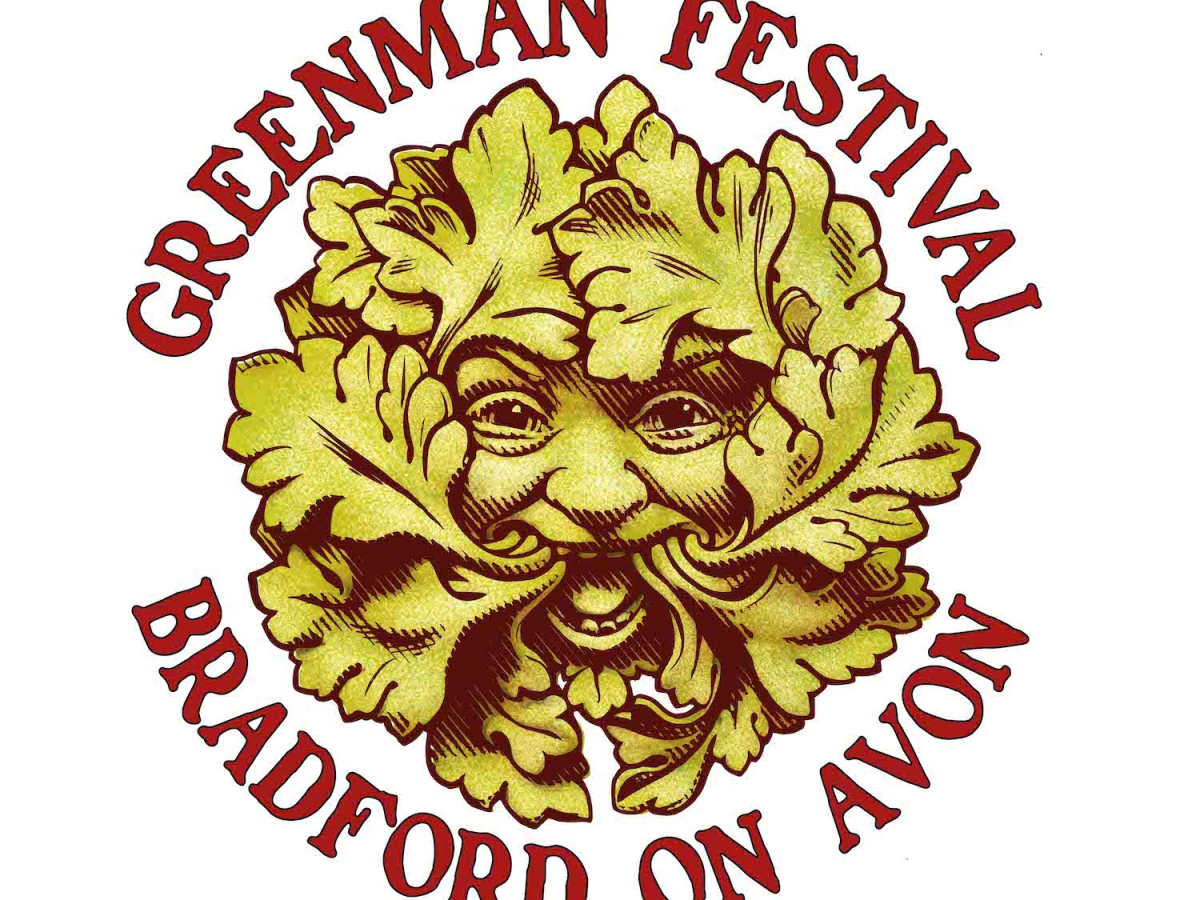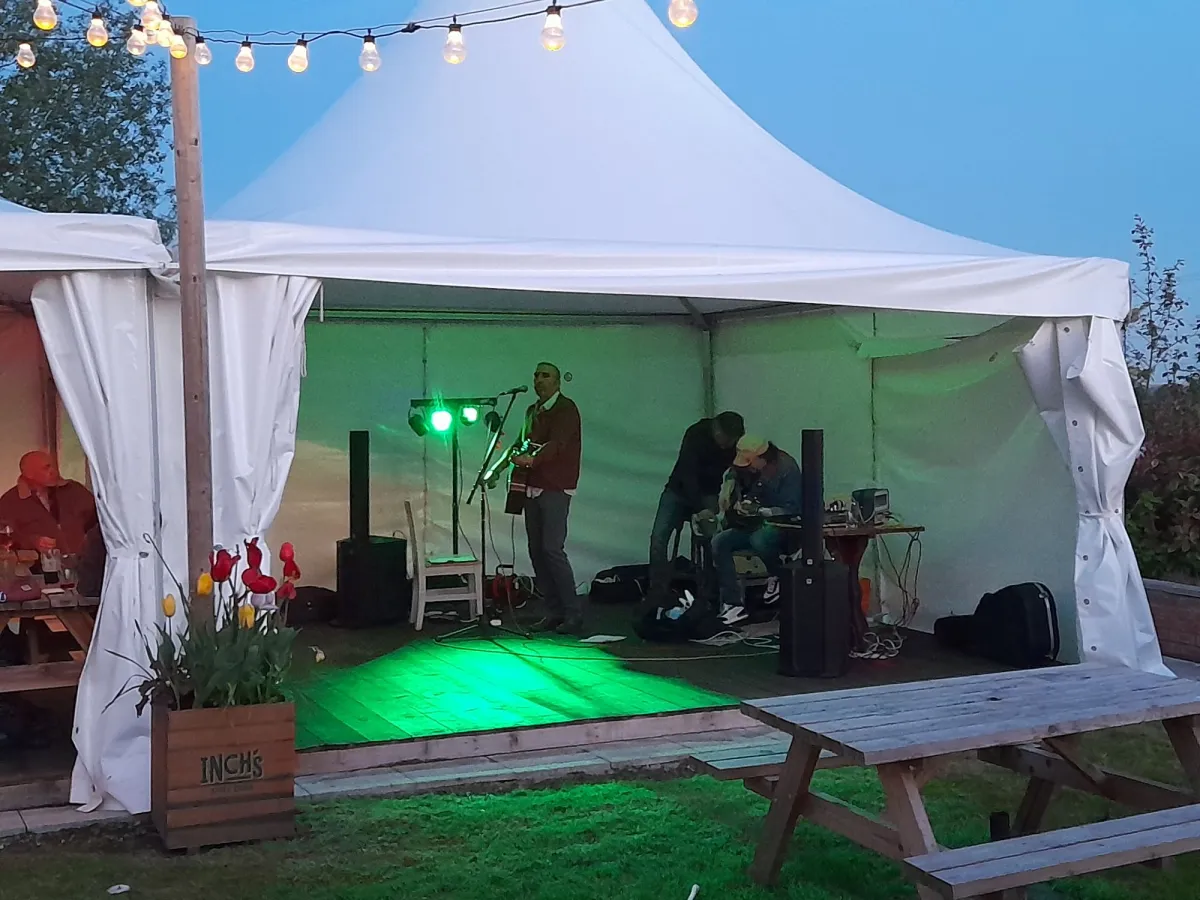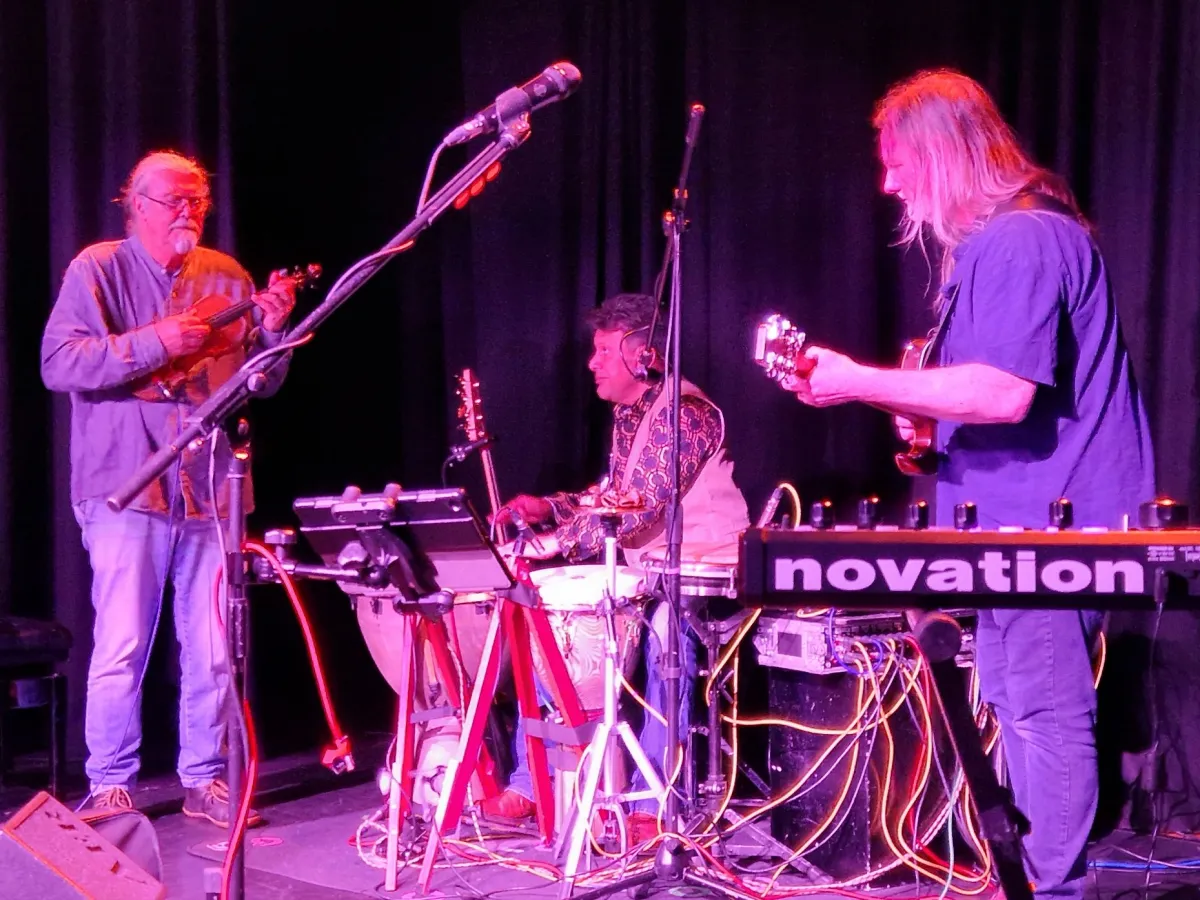It’s top marks for the Death of Guitar Pop duo, Silky and Top Kat, for their new album, Pukka Sounds, from me; did you expect anything less?!
In 1976 Bunny Wailer titled his debut solo album, “Blackheart Man,” that being a Jamaican version of the bogeyman. Perhaps he likened the mysteriousness of Rastafarians to this childhood fable, for prior to the Kingston trend, which we associate so closely with reggae, the Rastas were rural hermits, seen as dangerous outsiders. The sound of the time of the Wailers’ early development was ska, and had little to do with religious or political thinking. It was a dance, untroubled and carefree.
Yet by the second wave of ska, initiated by Coventry’s Two-Tone Records, groups like the Specials bought about a political stance to ska too. After a tinkering second of piano, sounding like the beginning of a Who rock opera, Pukka Sounds explodes, rightfully quoting their influences, “we play Two-Tone Records, Trojan Records.” Yet for me, the crucial line of “When the Ska Calls,” is “it’s the nuttiest of feelings,” a clear reference to Madness.
If mod and second gen ska was the concluding inclination of pop, prior to the hit factories churning out their monotonous formula, I was slightly too young to appreciate the solemn concepts bands like The Specials and Jam put forward. Merely a wee school kid, couldn’t relate to the teenage anguish of dogmatic student rants, or Terry Hall’s and exasperations at his sister. I thought the Jam were singing, “eating trifles,” rather than “Eton Rifles,” as in, “great trifle, mum!” “Thank you, Paul, I made your favourite flavour…. glue.”
But the underground youth culture had been breached; Bad Manners, The Piranhas, The Beat, Fun Boy Three, and especially Madness aimed at the charts. “Walking home and squashing snails,” was more relevant to me and my mates, than “bands don’t play no more,” ergo the resounding and lasting success of Madness above all others of the era.
It is of no bad thing then, the most appropriate comparison to Death of Guitar Pop can only be Madness, for their fairground sound was not just universally appealing, but reflected more on the original ethos of ska, as a carefree dance music. Death of Guitar Pop mimic this tenet, with bells, horns and chequered trilbies on.

I’m struggling then, to find anything serious about Pukka Sounds, and that’s its charm. Silky begins the second tune in with lounge style vocals, which has to be taken with a pinch of salt. Tongue-in-cheeks all the way through, I’d give Death of Guitar Pop takes Madness’s wittiest lateral to a whole new level, with tunes like Fell off the back of a Lorry, their jaunty Essex-boy humour is exposed, and comes over highly entertaining.
Perhaps the best track, for nodding to influences beyond Madness is The Death of Guitar Pop Shuffle, with the legendary Nick Welsh, aka King Hammond, for here’s a tune which recognises ska’s origins from the shuffle subgenre of RnB, the likes of T-Bone Walker and Fats Domino, replicated but reversed by Prince Buster at a Duke Reid recording sessions, to create “Jamacia’s first nation sound.”
Nods also go to reggae though, the pedigree “boss sound” distributed by Trojan in sixties England, which appeased the skinhead culture. I tip my hat to them for the track, For Alys, as a concentrated downtempo number without their comical toasting; their own The Return of The Los Palmas 7?
Bobby Dazzler, a Pukka Ballad, too, both challenging an anthemic hopeless romantic theme, naturally beer-driven last song ballads.
But, at best, Guitar Pop reveal in these beguiling ska and upbeat boss tunes with comical, carefree leitmotifs and nonsensical fun, like Captain Melvin’s Reggae Party Bus, and a cover of ska-punk band, Rancid’s Junkie Man, the aforementioned exactness to the ethos of Madness being the reason these guys have rocketed to the top of their game, in just three albums.
The array of ska nuttiness is reborn here, and the party doesn’t wait for those held up in the kitchen, the album marches, the sax on The Velvet Drum particularly evoking memories of Lee Thompson flying over rooftops.
For anyone with deliberations British ska is mislaid, home only to withering skinheads of a lost epoch, this deluxe edition of Pukka Sounds is eighteen original tracks strong, released yesterday, and it places England firmly back on the ska map amidst a universal scene. But more than this, their charisma is a beacon calling out to others, who may only have a passing interest in the movement. I urge, if you shrug at my consistent praise of ska, you’ve not tried Death of Guitar Pop, and really, you should. Then come back and tell me you didn’t least tap your toes, all the way to Southend pier and back, geeza!
Why? Need you ask why? Because, ska is the bollocks….




Trending…..
Poppy Rose, Ready Now….
Not being able to hold a note myself, I tip my hat to any musician in a band. Yet there’s something so much more valiant,…
Help DOCA Win Funding for the Confetti Battle
From carnival to the Winter Festival, DOCA stages so many great events in Devizes, most of them for free, but the most unique is the…
White Horse Opera Mathieson Trust Fundraiser with Anup Biswas
White Horse Opera members, Soprano Barbara Gompels, Mezzo Soprano Paula Boyagis, Tenor Carlos Alonso together with pianist Tony James join forces with international cellist Anup…
“The Thrill of Love” at The Wharf Theatre, Devizes, May 13th-18th 2024
By Ian DiddamsImages by Chris Watkins Ruth Ellis was hanged aged 28 years old, by Albert Pierrepoint the official executioner in the UK, at Holloway…
Weekly Roundup of Events in Wiltshire: 8th-14th May 2024
It’s beginning to look a lot more like spring now; you are officially cleared to go outside! Here’s what we’ve found to do outside, in…
Ooh La La Ya Beaux Gris Gris in Devizes!
Ben Niamor A triumphant album release party last night for one of the hottest, rapidly growing talents in the blues/rock scene; Beaux Gris Gris &…
Illingworth & George Wilding Crowned in Bishops Cannings
Must confess, I’m envious of the good folk of Bishops Cannings, perched here on a bench in an idyllic beer garden with spring sunshine setting,…
REVIEW – Peter Knight’s Gigspanner @ Pound Arts Centre, Corsham – Friday 3rd May 2024
A Knight To Remember Andy Fawthrop Gigspanner are in the middle of their UK Spring Tour 2024, and the Pound in Corsham has become one of…
Labour Party Could Change Star Wars Day to ‘Sci-Fi’ Day so to Not Offend Trekkies
If the Labour Party wins this next general election, they could change the name of Star Wars Day to ‘Sci-Fi’ Day so as not to…
Swindon Families to Unite in Memory of Innocent Children Killed in Conflict
A group of local women and their families are gathering together to lay a huge installation of children’s clothes outside the office of Justin Tomlinson…












